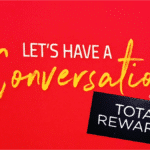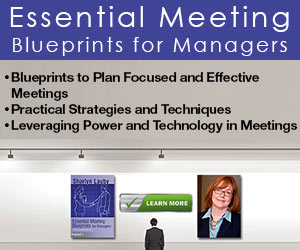I recently received a reader question about consulting:
About 10 years ago, while living in the Midwest, I started my own HR consulting business. I left it (kinda, it’s never been out of my mind) to take a “real” consultant job and move to Arizona. I was laid off in last year and want to establish my business again. I want to offer “virtual” HR services and be the HR department of small and medium sized businesses. I’d appreciate any advice/support you can give! Thanks!
I’ve written before about my life as a consultant. You can check those posts out here, here, here and here. Since I’ve already written about my consulting life, I wanted to give you a fresh voice in answering this question. So, I called professional colleague and blogging buddy, Alicia Arenas, to share her thoughts.
Alicia brings over 15 years of experience as an HR leader in Corporate America to her client companies. Her last corporate position was director of training and development. And, she’s SPHR certified. Her business, Sanera, is dedicated to helping small business owners become successful in their business. Take it away, Alicia!
Becoming a Consultant
Well, this is it. You’ve decided you want to become a consultant. Congratulations! Welcome to the exciting world of entrepreneurialism. Now what?
You, like most small business owners, may have the naturally intuitive idea that the more you know how to do + telling the world about everything you do = business success. It seems logical to think that, if you offer a plethora of services to all kinds of clients, you are guaranteed to get business. Been there. Done that. And it doesn’t work. That strategy will deplete your time, energy and your savings.
It’s like deciding you want to drop food coloring into a lake to turn it red. It’s going to take a lot of food coloring before that lake even shows a tinge of pink. Unless you can buy the red food coloring in bulk, (which is incredibly expensive) the process of turning the lake red will take a loooong time. In fact, the conditions of the lake may be such that your red food coloring will be absorbed and processed by the plant and animal life in the lake. In that case, your efforts were worthless.
But what if you aim to turn a glass of water red? How quickly could you accomplish that? How much less food coloring would it take?
That is what niche marketing does for you.

These are some of the Guiding Principles I use when helping clients identify their niche market:
- Something You Love Running your own business is challenging. There are going to be lots of good times and times spent in the valley too. If you are doing something you’re not passionate about, the times in the valley will feel endless. In these times, it’s often your excitement about what you do that will sustain you.
- People You Like See above. This is huge folks. If you think being in the valley is hard, imagine working on a long-term project with a client whose personality rubs you raw and whose values do not match yours. Do what you love to do with people you like. It fills you with energy, gives you passion and enthusiasm which is contagious and makes you fun to be around. (PS – That usually equals more clients and money.)
- People You Can Reach Evaluate your network. Ideally, your target market will be in your first level contacts. If it’s not, look at your second level contacts. Is your target market there? Can your first level contacts introduce you to them? Are there networking groups or Chambers of Commerce than can help you meet your target market? You may like professional sports players, but if you can’t reach them, seriously consider the amount of time, effort and money it would take to break into that niche. Analyze your network.
Thanks Alicia! As you can see, Alicia really understands the challenges of being an entrepreneur and uses her experience to helps others be successful. If you aren’t familiar with her business, I hope you’ll check it out. She focuses her practice in three specific areas. (1) Passion. So often business owners go into what they think they “should” do rather than what they want to do or what they are passionate about doing. Big mistake. (2) Profitability. Alicia told me about a current client she has who is bringing in $40k+ a month in revenue and is netting $2k a month. Something is wrong there. And, (3) Personal life. We don’t go into business for ourselves because we long to work 80 hours a week. We do it because we want our business to help us achieve something in our personal lives – more family time, better quality of life, etc. But small business owners (particularly solopreneurs) really struggle with finding time for personally fulfilling activities.
Many thanks to Alicia for sharing her expertise with us. As I read Alicia’s post, it reminded me that the year I started my business – as well as the year I purchased another business – I used coaches, like Alicia, to help with that transition. If I had only known her back then…
I’m sure there are several people out there who are considering consulting right now as a career option. There’s every reason to believe that consulting and freelancing will be considered the new normal as our economy recovers. Creating a good foundation for your business – even freelancing business – will make you successful.
Image courtesy of erix!







Trish McFarlane says
Sharlyn,
I’ve read your posts on becoming a consultant and found them to be very helpful guides for people considering it. Hearing that it’s not all glamorous and that there is a great deal of hard work will help them decide whether they have the desire to pursue it. I like seeing Alicia’s perspective too. Identifying a niche seems like the key to focusing your efforts to lead to the greatest opportunity for success.
Thank you Alicia for sharing and to you Sharlyn for asking her to share her thoughts. I’d be interested in hearing your thoughts on what a consultant should do if they get into it and it is not working. Are there pointers for people to recover in that situation?
Alicia Arenas (@AliciaSanera) says
Thanks for the comment Trish! One of the books I recommend to every small business owner is Purple Cow by Seth Godin. He does a great job of explaining why niche marketing is essential to success.
Frank Roche says
Really good points, Alicia. Without a niche, it’s a drop in the ocean (as you say).
I’d add a bit about the niche: It also has to be something you know inside and out. Dare I say it…you need to be an expert in that segment. I’ve seen a lot of consultants — especially one person operations — fail miserably because they didn’t have an expertise. Clients pay big money for expertise — and there’s a huge chasm between having an idea and actually having done it.
Sharlyn, I’d say your questioner should ask himself/herself if he/she has ever provided virtual HR services. And it’s essential to know if people will pay for that. I have to say, and I’m not trying to be a stick in the mud, I never would hire a virtual HR person for our 25-person business. We need to know the people we work with an see them face-to-face.
Very good article, Alicia and Sharlyn.
Alicia Arenas (@AliciaSanera) says
Frank, you make an excellent point about having experience and expertise. That is another one of the Guiding Principles I use with clients seeking to choose a target market.
In my last Business Boot Camp, there was some debate amongst the participants around how much expertise is needed. For example, one of the camps said you must know your products/services inside-out, but you don’t necessarily need that level of expertise for the industry you’re trying to reach. Their position was the industry can be learned. The other camp said it is essential to be an expert in it all – your products/services & the target industry.
Industries can be learned, but the people who have proven expertise in them will be the ones to dominate that market the fastest. Thank you for the comment!
Joe Lavelle says
I have enjoyed all your posts on “becoming a consultant”, especially this one and your guiding principles. Coincidentally, I wrote about this topic this week as well, but for Healthcare IT which may be a little different undertaking.
Are You Considering Becoming a Healthcare IT Consultant? http://healthcareittoday.com/2010/02/22/are-you-considering-becoming-a-healthcare-it-consultant/
Best wishes -Joe
Karla Porter says
I like the post very much and the interesting conversation that has resulted from the comments about who best fills the needs of a niche market for success.. The needs of industries can be learned but if you can can drill down further to reach the micro-niche of serving a particular industry you are intimately familiar with you will walk the talk and be in oh so ever higher demand.
Alicia Arenas (@AliciaSanera) says
Joe – I just read your post. Very thorough and thought-provoking.
Karla – Micro-niching? I love it! Discovering a niche is like the over-used analogy of peeling an onion. Small business owners typically have a tough time even acknowledging that they need to choose a niche. They have a lot of fears around limiting themselves. Once they acknowledge the importance of niche, the next layer is helping them choose it. Then your comment hits the next layer – micro-niching.
A question about this came up in Boot Camp. There was a participant skilled in multiple areas all related to, let’s say HR. She has skills in training and development, executive coaching, employee performance/productivity, etc. She had a multi-pronged question:
1 – Should she limit her practice to just one of the areas in which she is skilled? (Which she did not want to do.)
2 – Should she limit her practice to a particular market segment?
3 – Is it essential to do both? Or would just one suffice?
I’d love to hear everyone’s thoughts around this!
Karla Porter says
I guess I’m a drill down kind of person to begin with and find that for a consultant role I am much more a fan of being that sought after expert on a specific area and marketing yourself that way. I don’t feel Jack of all trades and master of none is as hot and marketable as a recognized specialist in XXX. It’s another thing to have a one stop shop agency of expert consultants in different areas of a discipline (like HR). Then you could market your business on mass, niche and micro-niche levels. But then you have moved away from solopreneurship and YOU being the consultant (that’s called business growth and definitely something to strive for).
Casting a wide net may appear to make more sense but one should realize that means competing with all the other multitude of fisherman on the dock that all look and smell the same.. It’s pretty hard to stand out in that crowd.
I am sticking to a consultant marketing a very finely honed specific service and earning a reputation as the “go to person”. Yep, that’s my story and I’m sticking to it.
Alicia Arenas (@AliciaSanera) says
Karla – I completely agree. During the Q&A of a presentation I delivered last week, I was asked if there was a common problem amongst the business owners I work with and if so, what it is. The answer – being too many things to too many people or not having a niche.
Thank you for the conversation and insights!
Jay D'Aprile says
This may be an obvious but if one is going to become a consultant they should realize that job one, two and three is sales. It may be more comfortable to call it marketing but at the end of the day if you do not feel comfortable picking up that phone and trying to develop business do not become a consultant. Over the last few years I know a number of former C-Level executives who have exited the corporate world to become consultants. They are very talented managers but often, they do not realize that their past experiences and skills do not automatically translate into a business that can support their lifestyle. I quote Alec Baldwin from the movie Glengarry Glen Ross “ABC, Always Be Closing” If you can sell everything else will fall into place.
Jay D'Aprile says
sorry worng web site
This may be an obvious but if one is going to become a consultant they should realize that job one, two and three is sales. It may be more comfortable to call it marketing but at the end of the day if you do not feel comfortable picking up that phone and trying to develop business do not become a consultant. Over the last few years I know a number of former C-Level executives who have exited the corporate world to become consultants. They are very talented managers but often, they do not realize that their past experiences and skills do not automatically translate into a business that can support their lifestyle. I quote Alec Baldwin from the movie Glengarry Glen Ross “ABC, Always Be Closing” If you can sell everything else will fall into place.
Alicia Arenas (@AliciaSanera) says
Jay – great insight! Yes, the best widget maker does not automatically become the best consultant. Sales is an important consultant competency. I encourage my pre-entrepreneurs to build strong relationships in their current networks so that when they become consultants they have a well-established target market developed. But, even that well dries up and old-fashioned cold calling becomes necessary. (Some would argue it’s necessary all the time.)
As an alternative to cold calling, I’ve seen several new consultants hire sales reps who receive a commission on every project or speaking engagement they secure. Sharlyn and I were recently discussing another alternative – Consultant Brokers. I’ll let Sharlyn share her thoughts on that. It’s fascinating!
hr bartender says
Thanks to everyone for the great conversation. And, thanks to Alicia for starting the dialogue with her post.
Alicia mentioned our conversation about consultant brokers. I’ve recently found a few people in my network are finding success in brokering the services of their colleagues. They were very successful sales people and have decided to use their selling skills and contacts to broker. It’s a real win-win for the consultant who wants some additional sales support but can’t afford to bring people on full-time and the sales professional who wants to offer a variety of solutions to their clients.
Consultant brokers could be an option to try when things are not going as well as you’d like (as Trish mentioned.) Even though I’m a small business, I regularly look at where my income comes from and what my clients are asking for. That helps me in terms of allocating resources.
I also pay attention to my sales funnel to make sure I’m converting leads to actual sales. Are you getting calls? Are calls being converted into meetings? Meetings into proposals? Proposals into sales? Frank talked about the idea of being virtual. And, being able to work from anywhere is a definite plus. But I’ve found that clients want to know their consultants and have a connection with them. That means you have to build those relationships.
Ann Bares says
Great post and conversation. I have to echo the advise about being focused and specialized. Many HR professionals who decide to try setting up their own consulting shop are both blessed and cursed to have experience in a lot of areas relative to talent management – but this “breadth” can prevent them from having a crisp, memorable brand out in the marketplace. My greatest advantage in starting and growing my own consulting shop has been the fact that I operate in a very specialized niche. So … 1) do a bit of market research and a little honest soul searching to find the niche that is in demand AND that you can get really excited about covering. Then 2) Resolve to do it better – from a client service standpoint – than anybody else out there.
Jacqui Barrett-Poindexter says
Alicia and Sharlyn,
What a meaty conversation! I’m sitting here trying to absorb all I’ve read. I may have to re-read again later to glean all the value. Thank you!
Initially, I’ll just hit on a few high points that struck me or were spawned as a result of your words.
1. I couldn’t agree more with Alicia regarding keys to consulting success — a) something you love; b) people you like; and c) people you can reach. Those have been vital to my 12-year stretch as a business owner.
2. I didn’t know, initially, where my niche lay. In fact, I just knew I LOVE writing; as well, I have certain organizational, process and meeting management skills honed in corporate America that linked business savvy to my writing.
3. After leaping off the cliff and going it on my own, it took me less than 1 year to zero in on my overall niche (resume writing) and another couple of years to sub-niche myself (resume writing is linked with career coaching, and this becomes a BROAD area). I decided words and career positioning documents are my strength; coaching and, specifically, interview coaching, are a micro-niche within that << Karla, not sure if I applied micro-niche in the way you intended, but I liked it, so adapted it to my purposes 🙂
4. The part about selling that Jay mentioned is a good subject; selling didn't come naturally to me, but like Alicia mentioned, I built relationships, partnerships and so forth to cultivate my marketing message. Though I plunged into deep water without a life jacket and HAD to learn to sell, I also adapted my selling and marketing strategy to my personality. I'm not naturally a hunter, I'm a relationship and value builder. That has worked for me.
I also enjoyed reading Sharlyn's description of a Consultant Broker. Makes good sense, and though I haven't hired such a broker for my business, I believe some of the referral relationships nurtured over the years have created a pre-sold customer pipeline that has advanced my business many-fold, perhaps akin to the results netted by a consultant broker.
Excellent blog article and conversation!